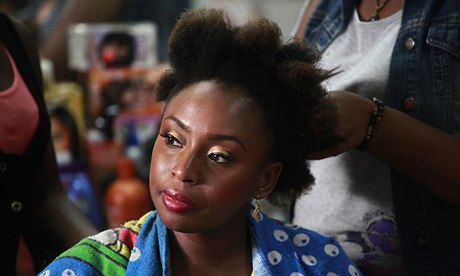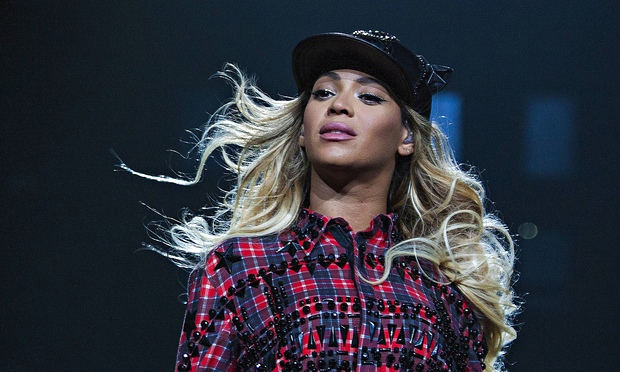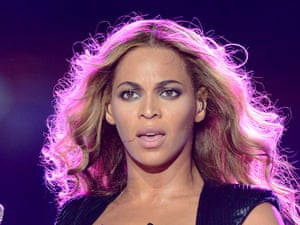Beyoncé's Dad, Mathew Knowles, Has His Own Theory About Lemonade's Lyrics

Since Beyoncé dropped her new album, Lemonade, last
week, fans have worked hard to decipher her heartfelt lyrics, while a
few stars have come forward to let the public know that they aren't featured on the project. In the wake of "Becky With the Good Hair"-gate, Beyoncé's father, Mathew Knowles, spoke to E! News on Tuesday and offered up an interesting theory about the hidden meaning behind some of the songs on Lemonade. "Let
me tell you who she's talking about, can I tell you who she's talking
about?" The 64-year-old asked before saying, "She's talking about you.
You put that in context for you personally. She's talking about you and
everybody that is you, that's who she's talking about."
He went on to talk about how Lemonade "relates to
everyone," adding, "Every one of us have been disappointed before and
have had to go through the grieving process of anger and, you know,
disappointment and then acceptance and forgiveness. And I think that's
why this again is touching so many people, because it's universal.
Everybody can relate to it." He then gushed about being "extremely
proud" of his daughter, saying, "Beyoncé just keeps pushing the envelope
and setting an example of the whole industry."
Several of Beyoncé's new songs could be aimed at her husband, Jay Z, but a lot of the lyrics have fans convinced that she's also referencing her parents' broken marriage. In
an interview with Sirius XM on Monday, Mathew also touched on those
rumors, saying, "Only Beyoncé can answer specifically who she was
talking to. . . . I would rather not get into speculation." Mathew and
Beyoncé's mom, Tina, divorced in 2011 after over 30 years together; it
was revealed in 2009 that Mathew fathered a child with another woman and
shortly after the split, Beyoncé also ended her professional
relationship with Mathew, who had been her manager since the Destiny's
Child days.
Beyoncé Knowles himself as ... Bill Gates!
Beyoncé Knowles is far from rich as Bill Gates, but according to an article on CNN, Beyoncé is built to become one of the entertainment icons of the world's most successful, like ... Bill Gates.
In her latest music video, "Formation", Knowles sang about wealth and its influence. She emphasizes her value does not change, despite the fact that she has "earned how much money."
In
between songs, told her husband, Jay Z rap artist, Beyonce said: "He
can become a Bill Gates", then she suddenly turned to praise yourself,
and say " I may be a Bill Gates ".
Beyoncé's assets by Forbes magazine estimated at $ 250 million. The assets of both spouses Beyonce combined estimated $ 1 billion.
While according to Forbes, the assets of Bill Gates $ 75 billion.
But Beyonce is still confident there is much the same as Bill Gates.
Charity
Both Bill Gates and Beyonce are actively doing charity, to help the world's poorest communities. Beyonce is appreciated in the relief efforts in the disaster Hurricane
Katrina, and she helped raise money for the humanitarian efforts of the
United Nations.
Meanwhile, Gates, through the Bill and Melinda Gates Foundation, is a well-known charity for the poor in Africa. He helped the African people against disease, poverty and bad sanitary condition.
Business
Both Gates and Beyonce have the project well-known business success. Microsoft's Bill Gates was once the most valuable company market shares. Windows operating systems are running on about 90% of computers worldwide.
Beyonce's fame also allowed her to reach its own independence in the entertainment industry that other artists do not get. She has a surprising new album on iTunes in 2014. She has created an ego Sasha Fierce. Her latest song, also makes the public aghast, played exclusively on
Tidal, streaming services which she co-owns with husband Jay Z.
Beyonce also has a number of significant contributions to major
corporations, especially Pepsi, financial firms fear the Super Bowl.
And failure
The success of Bill Gates came along with many failures. Windows Media Center, Microsoft Bob, Windows Me and Windows Vista are the major defeat of Bill Gates. In the late 1990s, Microsoft has been the US Justice Department and the European Union conditions for antitrust violations. It was forced to go to court because of the incident.
Beyoncé also failures. She and her mother established the fashion line called House of Dereon. Knowles helped design Dereon jeans and sell them at Macy's. But all failed. Even the Beyoncé has never wear them.
Beyoncé samples Chimamanda Ngozi Adichie's call to feminism
The Nigerian writer Chimamanda Ngozi Adichie makes a surprise appearance onBeyoncé's latest album, released on iTunes this morning, declaiming: "We teach girls to shrink themselves, to make themselves smaller. We say to girls 'You can have ambition, but not too much'."
The novelist's intervention comes during the track ***Flawless, appearing as a series of samples from her impassioned TEDxEuston talk, "We should all be feminists".
During the speech, the Orange prize-winning author argues that differing expectations of men and women damage economic and social prospects in Nigeria, and more generally around Africa and the world.
Beyoncé has been particularly inspired by sections where Adichie explores attitudes towards marriage, sampling a passage where the novelist talks directly about aspirations.

Another section sampled on ***Flawless argues that girls are raised "to see each other as competitors, not for jobs or accomplishments which I think can be a good thing, but for the attention of men".
Beyoncé has also used lines from a part of the speech where Adichie queries parents' attitudes towards young people's sexuality:
"We teach girls that they cannot be sexual beings in the way that boys are. If we have sons, we don't mind knowing about our sons' girlfriends, but our daughters' boyfriends? God forbid. But of course when the time is right we expect those girls to bring back the perfect man to be their husband.
The pop diva quotes Adichie's definition of a feminist as "a person who believes in the social, economic and political equality of the sexes".
Over the course of the 30-minute speech, the novelist argues that we do "a great disservice" to boys in how we raise them, putting them in the "hard cage" of masculinity; and that we do "a greater disservice" to girls.
"We say to girls, you should aim to be successful, but not too successful, otherwise you will threaten The Man."
Adichie begins her talk by recalling a Nigerian childhood spent reading British and American literature which inspired her to write novels featuring African characters. Now it seems the writer's words have themselves inspired an uptempo feminist anthem from one of the biggest names in pop music.
Beyoncé Knowles overtakes Oprah as Forbes' most powerful celebrity
Singer joins six more African Americans in magazine's annual Celebrity 100 list, with husband Jay-Z also in top 10

Beyoncé was named Forbes' most powerful celebrity of the year in a list unveiled Monday, snatching the top spot from Oprah Winfrey and joining six more African Americans in the top 10 of the magazine's Celebrity 100.
The singer earns an estimated $115m per year, making $2.4m per stop on the massive On the Run tour. Her husband Jay-Z is part of the same tour and also made the top 10, earning an estimated $60m per year.
It was a good year for minorities on the list – seven of the top eight most powerful celebrities, according to Forbes, are black; one, comedian Ellen DeGeneres, is gay. The magazine ranked the celebrities in order of their wealth and influence, measured by media appearances.
The top 10 most powerful celebrities, in order, are: Beyoncé, LeBron James, Dr Dre, Oprah Winfrey, DeGeneres, Jay-Z, Floyd Mayweather, Rihanna, Katy Perry and Robert Downey Jr.
In 2013, six of the top 10 spots were held by women, but only two of the 10 most powerful celebrities were black – Oprah and Beyoncé.
There was more reshuffling elsewhere on the list. Justin Bieber fell to 33 from number nine. Tennis star Roger Federer, director Steven Spielberg and the rock band Bon Jovi dropped out of the top 10 but still made the top 20.
Wildcards included conservative media personality Glenn Beck and Swedish DJ Avicii. Beck's earnings are estimated at $90m per year – he grabbed the number 39 spot. Avicii earned $26m in part on the strength of his single True, the biggest-selling electronic music song ever.
Beyonce on the Front Lines of the Music Industry’s Cold War
It wasn’t the lack of promotion that was the shocker, nor the visual album that broke the ground. It was the mere decision to move ahead of physical retail. As only Tamar Braxton could say it best, SHE DID THAT. And not only did she do that, she did it well, breaking sales records all along the way.
Now, Target (in an entirely unwise move, in my opinion) has mobilized its rumored army and met Beyonce and the entire rest of the music industry, unwittingly dragged along, in the epic battle that no one previously wanted to fight. See, in all the years that I’ve worked in music, the most serious tension that existed, the push backwards against the trend toward digital, was the absolute paralyzing fear that if we did anything to upset physical retail, namely move forward with a digital release ahead of them, the world would absolutely end. Sun, so more. Just pitch. black. night. And no more record sales. It would end us. That fear kept us beholden to piracy, album leaks, and huge promotional spends to guarantee rack space and prioritization, even though everyone knows that physical CD’s are used as a loss leader everywhere it counts. Yes, the wrath of physical retail was the boogeyman that no one wanted to face, that no one in the music industry felt that we were strong enough to fight.
Enter Beyonce and her army of girl-power-infused “she-devil” feminists. And I use the term “she devil” with the utmost respect – it connotes a lack of fear. An “I don’t give a single f*ck and haven’t had any to give in an while” kind of bravado that not only must you respect, but if you’re any kind of institution, any kind of old school retail gatekeeper or guardsman, has got to have you shaking just a little in your well-entrenched boots. This battle you never thought you’d have to fight. This battle you’re going to lose; and truth be told, it was lost before the battle began. To borrow from Tamar Braxton again, SHE WON.
It was only the fear of what might happen (loss of sales, not loss of physical retail support) that kept the music industry stuck with day and date release parity with physical retail. Now, thanks to Target, we get to see what actually will (or in this case won’t) be the actual repercussion. Remember the Cold War? Well, it was a war that was never intended to be fought. As was this with the music industry. Target should have never entered the battlefield. Walmart and Best Buy didn’t. At least this way, they could have always held the fear overhead and continued, for a while at least, to say “what if.” But now we know what if. Nothing is what. More sales at digital is what. Lack of leaks and thwarting piracy is what. iTunes is officially crowned King of Music is what. Digital wins.
And for all other industries living in fear of fighting this same battle, both sides should watch closely. Because if you chose to fight, one will have to die. If you choose to cooperate, you actually might step forward into what we like to call INNOVATION.
Music and Film Superstar Beyonce Knowles to Perform Live As Part of Ford Motor Company 100th Anniversary Concert Series
DEARBORN, Mich., March 9 /PRNewswire-FirstCall/ -- Beyonce Knowles, lead singer of the multi-platinum selling trio Destiny's Child and film star, today was added to the star-studded entertainment lineup for Ford Motor Company's (NYSE: F) THE ROAD IS OURS 100th Anniversary Celebration concert series. Knowles will perform live on Saturday, June 14, 2003, at 9 p.m. EDT.
Beyoncé's control of her own image belies the bell hooks 'slave' critique Roxane Gay Roxane Gay
hooks was, essentially, calling out Beyoncé as a "bad feminist" – a popular feminist pastime during which we arbitrarily determine who is or isn't doing feminism right. The word "terrorist", too, is a strangely popular go-to in feminist discussions that are not so much "discussions" as they are provocations, lobbed indiscriminately.
hooks and co-panelists Janet Mock, Shola Lynch and Marci Blackman were discussing Beyoncé’s Time cover, on which the singer is scantily clad and posing alluringly – as the hottest pop star in the world is wont to do when she has been named one of the 100 most influential people.
But there was more. hooks also said, "from my deconstructive point of view... she's colluding in the construction of herself as a slave ... it's not a liberatory image." This rhetoric of women "enslaving themselves", becoming ever more beholden to the patriarchy when they present themselves sexually, is common. It's quite the contradiction to want to overthrow the patriarchy but to also believe that, even now, the patriarchy is so omnipotent that women are incapable of making empowered decisions when they make decisions that don't toe the feminist party line.
hooks assumes Beyoncé had little control over her Time cover – but we're talking about Beyoncé. She upended the music industry when, last December, she surprised fans with the midnight release of her new album, recorded and mixed in utter secrecy and under her control. She has long acted as her own manager, produced and directed a documentary about her life and made many a lucrative business deal. If Beyoncé is, as bell hooks suggests, colluding in the exploitation of her own labor, it's unclear who hooks believes controls the means of production.
Advertisement
We don't need to be naïve, though: the entertainment industry all too often demands the sexualization of women as a precursor for their success. (My mother, for instance, likes to joke that Beyoncé and Rihanna both abandoned clothing at the same time.) hooks is absolutely correct that we need to critique and push back against gratuitous sexualization. Her concern that girls might singularly internalize the notion that their worth is intrinsically tied to their bodies – and the desirability of those bodies – is equally well placed.
At some point, though, we have to differentiate between concern and concern trolling. We have to trust that women can be feminists, good role models andembrace sexuality.
We have to believe that we can hold different points of view without labeling each other bad feminists.
Feminism is not a free-for-all where anything goes, but I would like to think that feminism (in addition to helping women overcome oppression in all forms) allows for women to make choices – even choices with which other feminists would disagree. It allows for women to be sexual and sexually provocative because they want to be. It allows for them to do with their bodies as they choose. Beyoncé, in her current incarnation, seems incredibly empowered. She is sexual, yes – but on her own terms. When Beyoncé wants, she rolls up the partition, so to speak.
Beyoncé is not above critique. As a feminist herself, I hope Beyoncé would welcome it. Unfortunately, hooks's statements provoke, without creating space for difference or substantive debate. She assumes the worst of people and the best of the oppressive patriarchy.
In referring to how Beyoncé looks on the cover of Time, hooks also says, "it's fantasy that we can recoup the violating image and use it...." It's a shame to see how an intellectual as illustrious as bell hooks has allowed the limits of the patriarchy's imagination of women – virgin or whore – to limit her own imagination of us.




